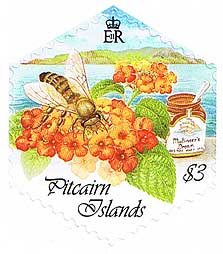We studied the effects of sublethal doses of imidacloprid on olfactory learning in the native honey bee species, Apis cerana, an important pollinator of agricultural and native plants throughout Asia. We provide the first evidence that imidacloprid can impair learning in A. cerana workers exposed as adults or as larvae. Adults that ingested a single imidacloprid dose as low as 0.1 ng/bee had significantly reduced olfactory learning acquisition, which was 1.6-fold higher in control bees. Longer-term learning (1-17 h after the last learning trial) was also impaired. Bees exposed as larvae to a total dose of 0.24 ng/bee did not have reduced survival to adulthood. However, these larval-treated bees had significantly impaired olfactory learning when tested as adults: control bees exhibited up to 4.8-fold better short-term learning acquisition, though longer-term learning was not affected.
Source:
Ken Tan et al. Nature Scientific Reports 5, Article number: 10989 doi:10.1038/srep10989

- Log in to post comments
